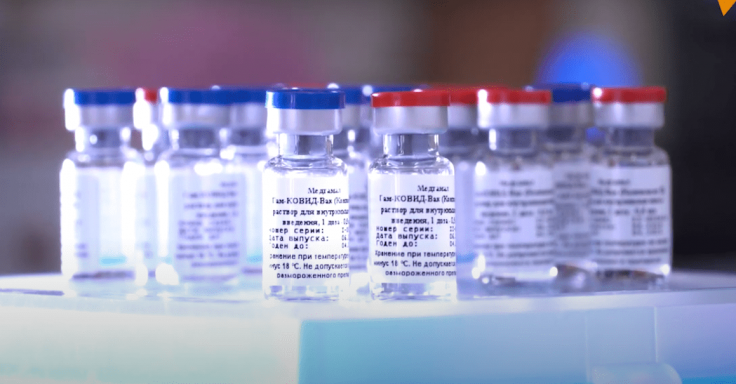Russia's rushed development of Sputnik V, the world's first Coronavirus vaccine, has met with skepticism from healthcare experts. However, the Philippines has agreed to take the vaccine, albeit after conducting a large-scale clinical trial.
The vaccine, developed jointly by the Gamaleya research institute and the Russian defense ministry, was supposed to be the country's 'Sputnik moment' (first man-made satellite to put in orbit by Russia in 1957). But the clinical trial data and limited test volunteers have every expert questioning the vaccine's effectiveness. But Russia went ahead anyway with regulatory approval after just two months of testing and hailed the country's scientific prowess.
In its combined Phase II and III clinical (human) trial phase, the institute tested the vaccine only on 38 volunteers. And that's not sufficient when it comes to mass production. Compare that to the vaccine currently being developed by Oxford University and AstraZeneca, which has already been tested on thousands of volunteers. Even vaccines that are being developed by China are being tested in the United Arab Emirates, Pakistan and Brazil besides Canada on thousands of people as has been the norm.

Hence, when Russian officials reached out to Operation Warp Speed, a multi-level U.S. agency to accelerate treatment and vaccine for COVID-19, the latter refused. The agency officials told CNN that the Russian vaccine was not reliable as it didn't go through rigorous testing.
Russia's Guinea Pig
That, although didn't stop the Philippines President Rodrigo Duterte from expressing his interest in the Russian vaccine. Even before it was registered, he volunteered to be the test subject. "I will tell President (Vladimir) Putin that I have huge trust in your studies in combating COVID and I believe that the vaccine that you have produced is really good for humanity," Duterte said.
"When the vaccine arrives, I will inject it publicly. Experiment with me, that's fine. If it works on me, it will work on everyone," he added in the televised speech on Monday, August 10.
Duterte is a known admirer of Putin and has even hailed him as his hero. But he will have to wait despite his immense trust in Russia's scientific prowess. Duterte's spokesperson Harry Roque confirmed that he will not receive the vaccine until the country's regulators confirm its safety. Instead, the Southeast Asian country's leader will only receive the vaccine no earlier than May 1, 2021.
Now, Filipino regulators will review the results of Phase I and II trials next month before proceeding with Phase III simultaneously with Russia in October and will go on till March next year. "The Philippines stands ready to work with Russia on clinical trials, vaccine supply and production, and other areas deemed practicable by relevant Philippine and Russian agencies to address this global health emergency," read a statement from Duterte's government.

However, the Russian vaccine candidate isn't the only one the Philippines is in talks with. The country's Department of Health (DOH) said that it had reached out to as many as 16 vaccine manufacturers in other countries that are developing a vaccine.
"What we have right now is we are discussing, exploring avenues," said Health Undersecretary Maria Rosario Vergeire, adding that the DOH was in different stages of communication through bilateral partners with 16 vaccine manufacturers.
The country has also joined the COVID-19 Vaccines Global Access (COVAX) alliance. The facility will allow the delivery of the first tested and approved vaccine equally among its partners. The Philippine is the worst-effected country in Southeast Asia with nearly 150,000 confirmed cases of COVID-19 and over 2,400 deaths.
'Not in Advanced Stage of Testing'
Meanwhile, the World Health Organization (WHO) is not considering the Sputnik V among the nine Coronavirus vaccines it has named in the advanced stage. Dr Bruce Aylward, a senior adviser to WHO's Director-General, said the world body didn't have sufficient information to make a judgment on the Russian vaccine.
"We're currently in conversation with Russia to get additional information to understand the status of that product, the trials that have been undertaken and then what the next steps might be," he added.








